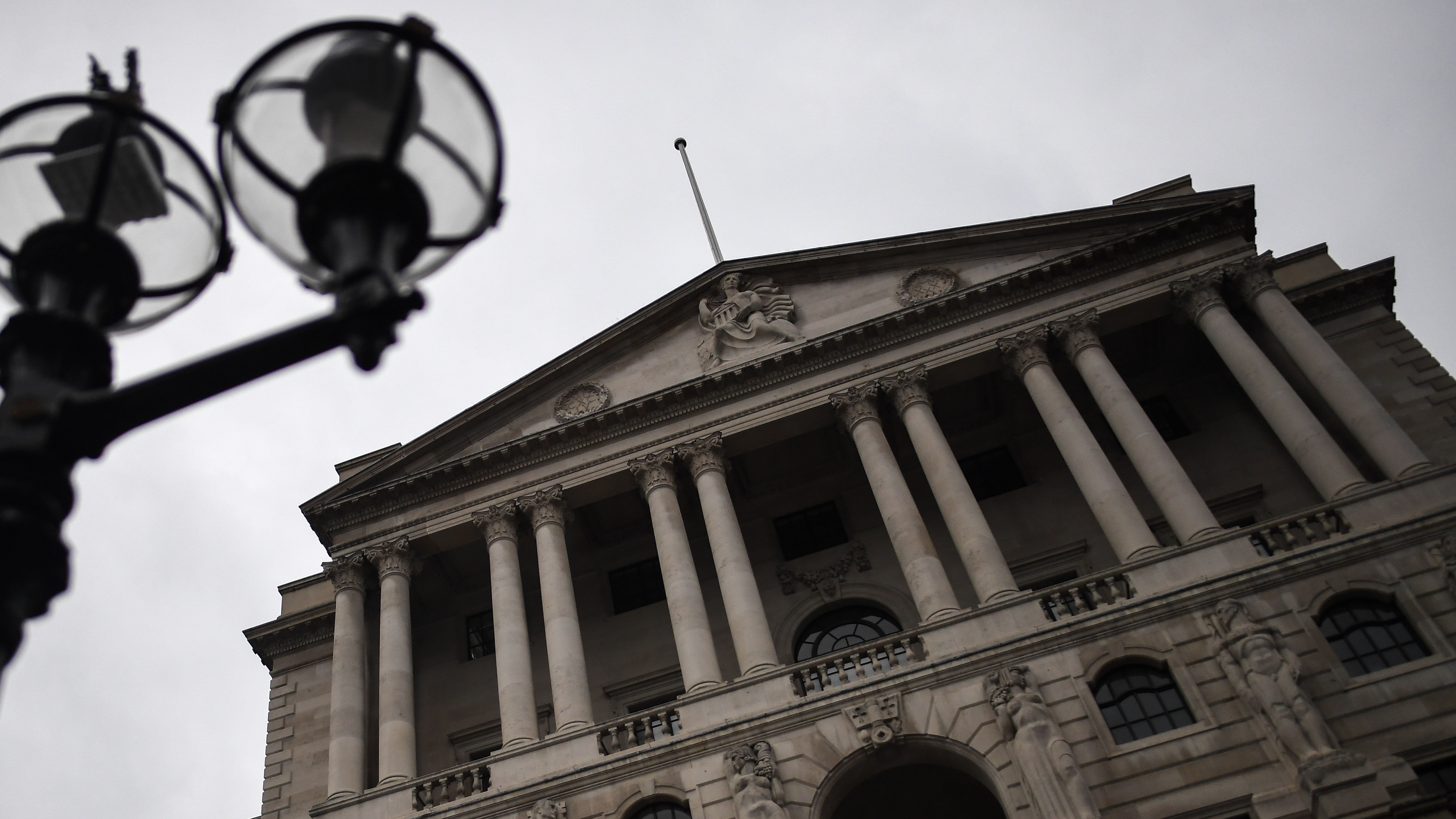Government 'rushes through' crackdown on rogue pension firms
New laws include a 'fit and proper' person test and minimum cash reserves for scheme operators

A free daily email with the biggest news stories of the day – and the best features from TheWeek.com
You are now subscribed
Your newsletter sign-up was successful
Growing fears that millions of workers' savings might be at risk of fraud has "prompted the government to rush through tougher rules", says The Times.
Under new laws, set out in a pension scheme bill yesterday, those looking to set up a workplace pension scheme will be subject to a "fit and proper" person test and forced to hold minimum cash reserves, among other things.
Concerns first surfaced in February when Andrew Warwick-Thompson from The Pensions Regulator went public over deficiencies in the oversight of so-called "master trusts".
The Week
Escape your echo chamber. Get the facts behind the news, plus analysis from multiple perspectives.

Sign up for The Week's Free Newsletters
From our morning news briefing to a weekly Good News Newsletter, get the best of The Week delivered directly to your inbox.
From our morning news briefing to a weekly Good News Newsletter, get the best of The Week delivered directly to your inbox.
These are funds offered by multiple companies to comply with auto-enrolment rules introduced in 2012, under which all UK employees are placed into an occupational pension scheme unless they actively opt out.
Master trusts include the government-backed Nest, its low-cost rival NOW:Pensions and several big pension schemes run by large insurers. There are also a number of funds set up by a range of smaller providers without any track record in the sector.
There are up to 80 master trust schemes in the industry but only 10 are considered profitable. Without hefty cash reserves, an unexpected setback such as the collapse of a sponsoring employer could be all it takes to tip many of them over.
Worse, with little regulatory oversight there are fears that rogue operators could set up funds as a scam. Warwick-Thompson says the regulator has reported several such operators to the Serious Fraud Office.
A free daily email with the biggest news stories of the day – and the best features from TheWeek.com
Plans to introduce new laws relating to pension schemes were first announced at the Queen's Speech in May.
These include new "fit and proper" person tests designed to weed out anyone with a criminal record. Tougher governance rules, reserve requirements and demands for continuity plans will help protect workers if problems arise.
Nick Keppel-Palmer, head of strategy at Husky Finance, which helps small companies pick pensions schemes, said: "These are the right measures, but they should have been in place four years ago.
"It’s been much, much too easy to set up a master trust. There are far too many poor ones."
Pension protections outlined in Queen's Speech
19 May
Workers who have been automatically enrolled into a workplace pension scheme will have their pension savings better protected under new plans outlined in the Queen's Speech.
Contained within the series of announcements setting out the legislative agenda for the year ahead, as part of the official state opening of parliament ceremony, is a new pension bill that will introduce a tougher regime for so-called 'master trusts'. These are single funds used by multiple employers as their default occupational pension scheme.
Back in February, Andrew Warwick-Thompson from the Pensions Regulator revealed the watchdog was concerned about a number of firms that had set up master trusts but lacked the funding needed to survive.
While larger funds in the sector, such as the government-backed National Employment Savings Trust, clearly do not pose a risk – and many others are provided by firms regulated by the Financial Conduct Authority and therefore subject to more stringent requirements – master trusts are subject to very few regulations.
This means they have no minimum requirements on the level of funds in the event of failure and smaller funds have been cited as a fraud risk. "The regulator is understood to have become so worried about some providers that it has passed information on them to the Serious Fraud Office," The Times reports.
The Financial Times says the new bill will include "strict" new entry criteria setting out, for example, minimum capital reserves, while the Pensions Regulator will be handed new oversight powers. Pensions minister Baroness Altmann said the rules would "absolutely apply" to the estimated 80 master trusts already in the market.
There will also be a cap on the exit charges such schemes can charge, while the new law will bring forward previously announced plans for the Pension Advisory Service, Pension Wise and Money Advice Service to be merged into a single financial advice body, reports the BBC.
The Queen's Speech was broadly considered a safe affair with laws, such as the pensions bill, designed to garner broad support in a Conservative Party split over the EU referendum.
That said, the Huffington Post reckons that as many as 25 Tory Eurosceptic rebels could sign an amendment demanding a carve-out for the NHS from the Trans-Atlantic Trade and Investment Partnership deal being negotiated between the US and the EU, which would also be supported by Labour and the Scottish National Party.
This could mean the first government defeat for a Queen's Speech since a vote of no confidence forced Tory prime minister Stanley Baldwin from office in 1924 and led to the formation of the first ever Labour government.
Pensions at risk of fraud and failure, warns regulator
25 February
Thousands of people automatically enrolled into a workplace private pension could lose their savings through scheme failures or outright fraud, according to regulators.
Andrew Warwick-Thompson, from The Pensions Regulator, told the BBC the watchdog is worried about a number of firms that have set up so-called "master trusts" that may not have sufficient funding to survive.
"There is a risk of these schemes falling over; there is a risk that members might lose their money," he said.
There are also fears the system for setting up these smaller pension schemes is so inadequately monitored that it is susceptible to fraud. "The regulator is understood to have become so worried about some providers that it has passed information on them to the Serious Fraud Office," says The Times.
Larger insurers and other "contract-based" schemes that offer auto-enrolment services to employers are regulated by the Financial Conduct Authority (FCA). These firms typically have long histories and have to pass strict assessments and offer at least limited protection to savings.
Master trusts simply have to be registered with HMRC and are overseen by The Pensions Regulator. Of around 70-80 in the market, only ten are currently considered sustainably profitable while just five carry the Master Trust Assurance Framework kitemark.
In the "vast majority of cases", even those operators that appear fragile are investing the assets safely with an FCA-regulated entity, says Warwick-Thompson. But where this is not happening, the regulator is concerned savers' money could, in extreme cases, be lost.
Critics are also demanding changes to the regulatory framework to toughen up the rules for master trusts and potentially to bring together the oversight of the schemes under one watchdog.
Pensions minister Baroness Ros Altmann said the government was aware of the issues and was working to ensure pensions were protected. "Doing nothing is not an option," she added.
1. http://www.bbc.co.uk/news/business-35560788
2. http://www.thetimes.co.uk/tto/money/pensions/article4696841.ece
-
 Political cartoons for February 15
Political cartoons for February 15Cartoons Sunday's political cartoons include political ventriloquism, Europe in the middle, and more
-
 The broken water companies failing England and Wales
The broken water companies failing England and WalesExplainer With rising bills, deteriorating river health and a lack of investment, regulators face an uphill battle to stabilise the industry
-
 A thrilling foodie city in northern Japan
A thrilling foodie city in northern JapanThe Week Recommends The food scene here is ‘unspoilt’ and ‘fun’
-
 Six ways to boost your finances in 2026
Six ways to boost your finances in 2026The Explainer It’s not too late to make a new year’s resolution to finally get organised money-wise
-
 The financial impact of returning to work in later life – should you 'unretire'?
The financial impact of returning to work in later life – should you 'unretire'?The Explainer Many people return to the workplace after retirement age, but what could it mean for your finances?
-
 State pension underpayments: are you getting the right amount?
State pension underpayments: are you getting the right amount?feature Hundreds of thousands of women may have received less than they were owed
-
 Early retirement: what is the ‘FIRE’ movement?
Early retirement: what is the ‘FIRE’ movement?feature Younger workers are aiming to quit the workforce early through extreme saving and investment
-
 How women can bridge the gender pension gap
How women can bridge the gender pension gapIn Depth New figures have shown the extent of the problem for women in retirement years
-
 How to plug the pension gap by buying National Insurance credits
How to plug the pension gap by buying National Insurance creditsfeature A temporary change in the state pension offers a ‘golden opportunity’
-
 Are UK pensions safe?
Are UK pensions safe?Today's Big Question Bank of England governor says its debt market support must end – but the multi-billion-pound scheme could be extended
-
 Pensions: time to end the triple lock?
Pensions: time to end the triple lock?In the Spotlight Ministers must decide whether to risk alienating older voters by ending guaranteed pension rises